- Home
- Resources
- Publications & Guides
- 7 Principles of Inclusive Playgroun...

7 Principles of Inclusive Playground Design
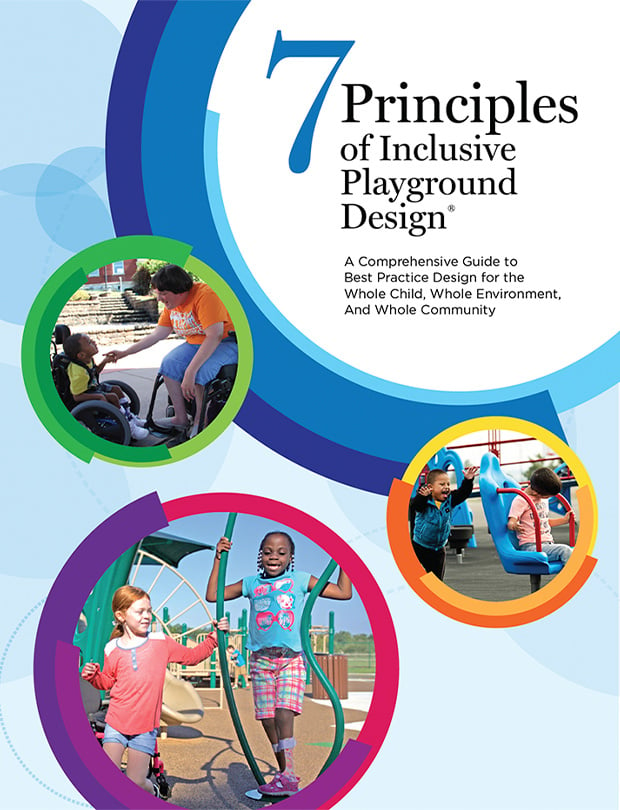
7 Principles of Inclusive Playground Design
Equitable Play Experiences for All People
A comprehensive design program to create research based play environments for people of all ages and abilities through intentional design for physical, cognitive, communicative, social/emotional, and sensory development.
"We believe in equity and inclusion, and we invest in research, programs, and continuing education to help communities advocate for innovative spaces."
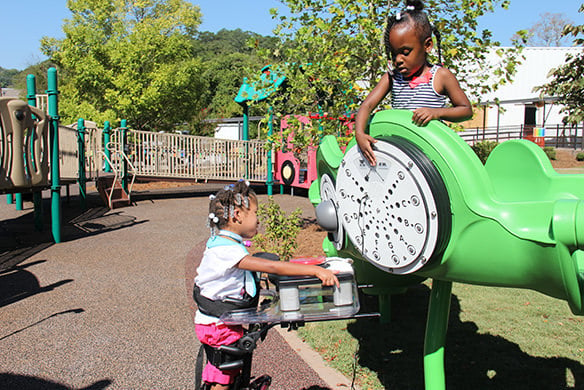 >
>
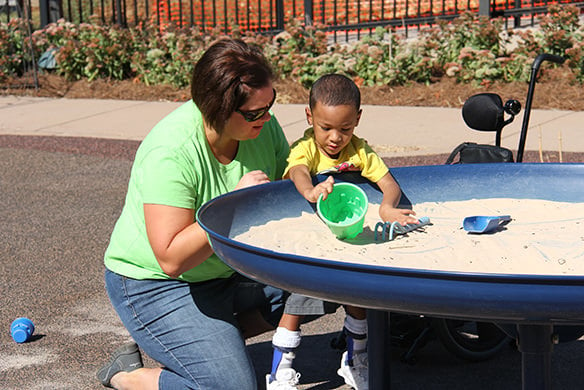 >
>
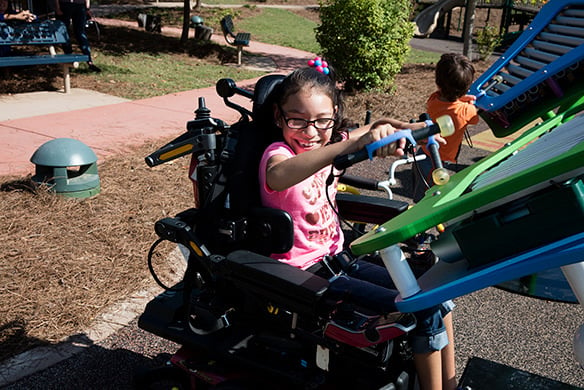 >
>
The Science
Inclusive playgrounds make a fundamental statement about how communities value meaningful play experiences for people of all ages and abilities. Developed in partnership with Utah State University Center for Persons with Disabilities, PlayCore offers a comprehensive design program for creating truly inclusive play environments for people of all ages and abilities. The program defines 7 design principles that help create an embracing play experience by addressing the developmental needs of the whole child - intentionally providing opportunities for physical, cognitive, communicative, social/emotional, and sensory development. Implementation of the 7 Principles of Inclusive Playground Design(R) helps create a unique and meaningful play environment that is usable by more people, to the greatest extent possible.
We have specifically tailored the 7 Principles of Universal Design, originally created for building design by the Center for Universal Design at North Carolina State University, to what all children want to feel and experience during outdoor play. No two universally designed play environment projects are alike, but in all play environments, children want to “be and feel” fair, included, smart, independent, safe, active, and comfortable during play. The 7 Principles of Inclusive Playground Design focus on the usage of individual play elements as well as the overall playground environmental design. After all, inclusive play is not solely about physically accessing and using an environment, it includes the social aspects of what happens once an individual gets there.
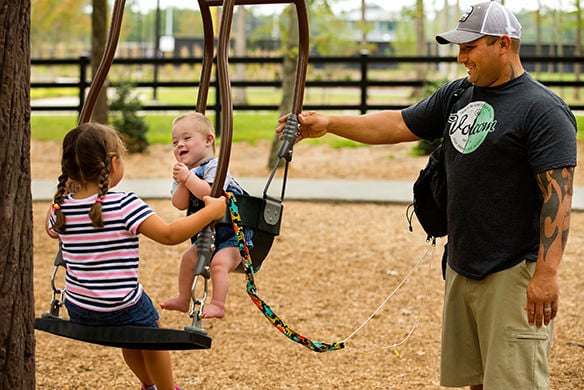 >
>
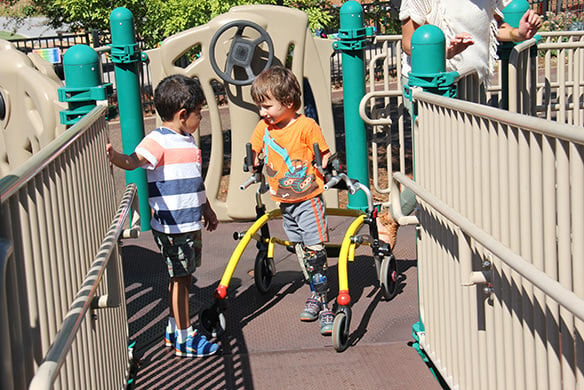 >
>
Why Request the 7 Principles of Inclusive Playground Design?
While access considers how to get children to the space, it doesn’t address ensuring they have opportunities to engage, nor does it address the full spectrum of people’s abilities. Inclusion isn’t about physical proximity; it embraces the mindfulness that other people may have a reality different from your own. It’s a way of thinking and making decisions so that everyone belongs. It’s about intentionally planning for the success of everyone. Environments designed with the guidelines intentionally address the physical and social inclusion of people of all ages and abilities. Rather than focus on disability, the program informs on how to celebrate ability, so that anyone who comes to the playground can play to the greatest extent possible.For communities wishing to move playgrounds beyond minimum access and create more usable play environments, the 7 Principles of Inclusive Playground Design(R) provides a design philosophy that recognizes everyone’s right to fully participate in equitable play.
Our playgrounds built using the 7 Principles of Inclusive Playground Design are eligible for National Demonstration Site status and benefits.
Contributing Scholars

Keith Christensen, PhD
Utah State University Professor; Department of Landscape Architecture and Environmental Planning
Keith Christensen, PhD
Utah State University Professor; Department of Landscape Architecture and Environmental PlanningDr. Keith Christensen earned a masters degree in landscape architecture and a doctorate in disability studies. He is a Faculty Fellow with the Center for Persons with Disabilities and a professor of the Department of Landscape Architecture and Environmental Planning at Utah State University. As a scholar in both the Department of Landscape Architecture and Environmental Planning and the Center for Persons with Disabilities, Keith engages in meaningful scholarship which is both emancipatory and empowering for disadvantaged populations’ integration in community life. Keith's research is at the intersection of landscape architecture and disability studies. This blending is based on understanding disability through a social constructivist perspective as the limiting of opportunities to take part in community life because of physical and social barriers. Keith's research emphasizes inclusive design and planning practices which support participation in community through the removal of environmental barriers to social access, rather than the regulatory aspects of site specific design. He directs the Beyond Access program which advocates for the planning and design of socially inclusive play environments and he is the Principal Investigator on a Federal program to support individuals with disabilities community living and participation.
Areas of Discipline
- Landscape Architecture & Disability Studies
Contributions
Program Request
Fill out the form below to request your copy of 7 Principles of Inclusive Playground Design

